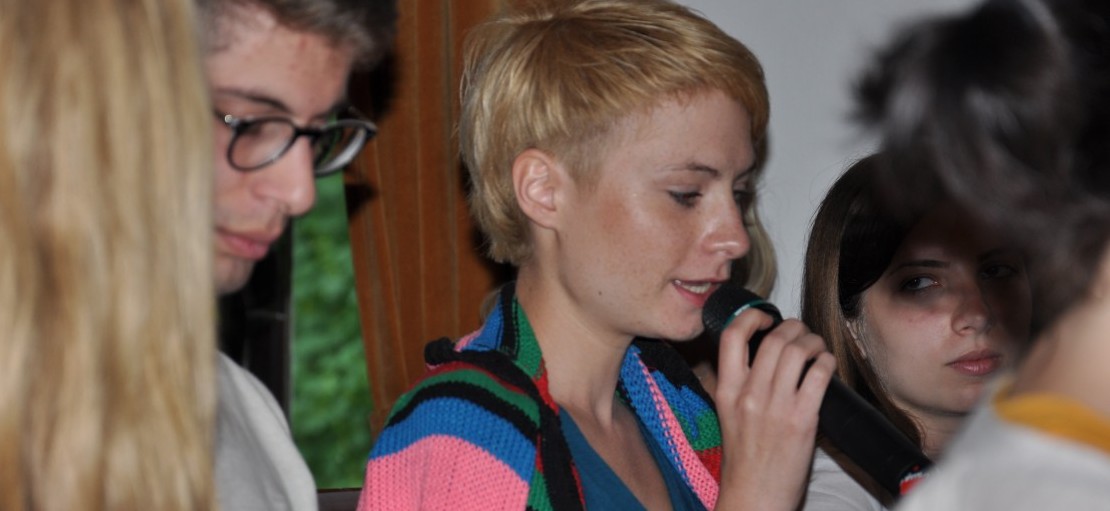
But the reality shapes media landscape as well. That’s somewhat brutal truth might serve as the brief conclusion of the inaugural debate of the first day of the second week of the 12. Visegrad Summer School.
What is the role of media in political transformation of a state? That was the main question of the debate conducted by Danuta Glondys, the Director of Villa Decius Association. Nevertheless, as long as the topic is complex, the invited journalists from Hungary and Poland eagerly shared their views and experiences to give a more broad ground for the discussion. To Karol Szyndzielorz there are some preconditions that may form a quality debate during the political breakthrough. Following the experiences of the Polish round table, these are – first and foremost – equal rights to present own views. In addition, Danuta Glondys underlined the need to establish a common language of communication that enable to treat the interlocutor as a partner, not a hostile in public debate. Gábor Nagy (HVG weekly) highlighted one of the specific characteristics of the media from Central and Eastern Europe. Not only they are more about opinions than news but also they seem to lose freedom and independence while getting more powerful. This was also emphasised by Máté Csicsai (kitekinto.hu) who admitted that the Central and Eastern European media are closely linked to certain political stances and as a result the more sharper opinions you give the more popular you become. This kills the quality of the public debate. What is even more dangerous to Zoltán Kottász (Magyar Nemzetdaily) than harsh political disputes or the hotly debated Hungarian Media Law is the pressure of the lobbies and business. As he said the private sector has more direct tools to affect the media discourse than the government. Zoltán Laky (Heti Válasz weekly) pointed out that also tastes and views of the readers who prefer the opinions that they share have to be taken into account.
The panellists’ statements raised many questions and controversies. Many participants I was talking to were shocked by “the immoral sincerity” of the journalists. Zsuzsanna Bódai and Eszter Neuberger who both study media and communication at Eötvös Loránd University in Budapest would rather see journalist as a profession that implies some special responsibility and a sense of public service than following the views of media owners and shareholders.
Kazimierz Popławski from Poland provocatively questioned the need of media freedom in the light of continuously lowering level of their quality. The question remains open. As was said during the debate, we can do hardly anything. There are too many factors shaping the media landscape and actually very few political tools. Nevertheless, should we really give up and acknowledge our defeat?
One of the possible answers was suggested by Anastasia Samokhina from Russia who argued that actually the printed or other traditional media will soon disappear. As she said the future media have to be complimentary with the rules of the Internet. Obviously, it brings many threats. However, in some way it may free the media from the clinch between business and the government. As long online media are cheaper, they are less dependent to the finance donors’ influences. What is more they are more pluralistic and democratic.
Ziemowit Jóźwik













